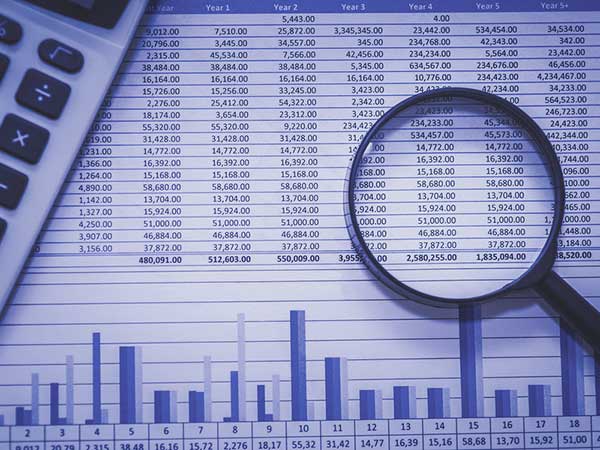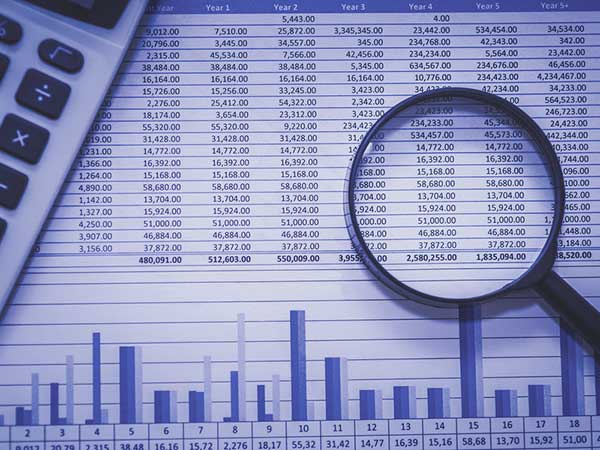Understanding the financial health of a company can make or break investment decisions, inform funding efforts, and even give deeper insights into brand health. Thus, a productive way to look at how our own or other companies are doing is by looking into the financial data. This is the information on the fiscal stance and operations of the company that will provide valuable insight into what could or even must be changed for a healthier future of the business.
The flow of money
Moving capital, investing, making transactions, planning a budget are the most essential procedures of any business. All these things describe and specify the flow of money into, out of, and through the business. When this flow is well analyzed and understood, a lot can be said about the condition in which the business currently is and its prospects for the future.
This is precisely what financial data is for. It is collected and analyzed to grasp what is right or concerting about the financial situation and movement of money of the company. The following information is part of financial data:
Business assets: Business assets include a wide range of capital including, but not limited to real estate, equipment, furniture, transport, etc. This also includes intangible property, like patents.
Any outstanding liabilities: These are all the money that a business owes, like debts and interests, money owed to suppliers, other bills, and salaries to be paid.
Equity: Equity is defined as the total value of the assets after liabilities have been deducted. This could be negative when the company owes more than is able to pay through its assets.
Revenue: Revenue including any income or returns on investments over time. Comercial revenue often refers to as sales or turnover.
Expense records: Expenses for a particular purpose over a period of time. More specifically, expense records, or transaction history, can be used to monitor internal company health or even the financial health of competitors.
Investments: This can include any investment levergages, meaning the proportion of capital that has been provided by investors as opposed to creditors.
Ultimately, these are just a few of the important types of financial data that can improve decision-making throughout business processes. In essence, any information that refers to the movement of finances through the company or in any other way refers to its financial health is financial data.
The power of financial data
The immense importance of financial data is easy to understand. It can tell us a lot about ourselves as a business and the businesses that we are interested in. To make it even more clear, where the power of financial data lies, here are a few examples of how this type of information can be used in beneficial ways.
Internal company health
As we grow up, we learn to understand the concept of personal financial health and its importance. We have to know how to track and carefully manage our finances to lead a satisfying life. The same goes for companies, except here it is more complicated, as there more areas to cover. That is why it is crucial to track and analyze constantly the financial data of your company. Properly investigated, this information will provide a better understanding of which strategies work out, which does not, and what simply costs too much. This means protecting the health of your company and making sure it lives on.
Competitive advantage
Financial data is an important part of competitive intelligence, as it shows us how we stand against other firms. Having a deeper understanding of our financial situation in itself gives us an advantage against the companies who lack such understanding about themselves. But this advantage is increased when we also have a grasp of our competitive environment. Our strengths, weaknesses, and opportunities are written in the numbers that express our own and competitors’ financial operations and assets. We just need to get to this information and extract this knowledge.
Investment intelligence
Naturally, financial information is extremely important for investors. Knowing the company’s equity, leverage, and credit history will tell you a lot about how the company is doing and what are its prospects for the future. Additionally, financial data on many different companies, like their profits and expenses for particular developments has the potential to provide insights into entire industries and where the markets are headed. One example of this would be for investors to analyze credit history and past financial performance when making investment decisions or mergers and acquisitions.
Market research
In addition to utilizing financial data to get a better understanding of your competitors throughout the market landscape, financial data can also help developers with market research. Developers are able to see which products are performing well financially, as well as if any start-ups have had funding recently, providing information about early signs of product success of similar products. For example, monitoring funding information of start-ups in the same industry can help companies determine if they need to increase their output or start building more features for their products or services.
Collecting the data for better decisions
It is undeniable that financial data is an extremely important source for the well-informed management of a company. Thus, it is crucial to track such data with the best available tools. This means an accounting software that manages to do as much as possible automatically, as any necessity of manual input delays the process and increases the risk of errors.
When it comes to other companies, once again, one would need as much assistance from the AI as possible. As there is a lot of available financial data on the companies in their websites and published financial statements. However, as there are also a lot of companies out there, lots of data would need to be collected and analyzed as fast as possible to make the most of it.
In any case, the fiscal health of the company is among the most important indicators of its future.























![Growth and future of Fintech: From Wire Transfer to Blockchain [Infographic]](https://crayondata.ai/wp-content/uploads/2019/02/banking1-1.jpg)